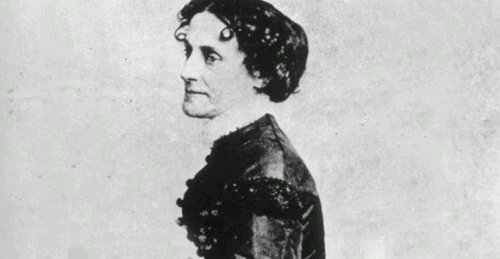
"Raised in a wealthy slave-holding family in Richmond, Virginia, Elizabeth Van Lew developed strong abolitionist sympathies as a young adult, particularly after attending a Quaker school in Philadelphia. After her father’s death in 1843, Van Lew convinced her brother to free their slaves, many of whom stayed on as paid servants. When war broke out, Van Lew and her mother began visiting Union soldiers held in Richmond’s brutal Libby Prison, bringing them clothing, food and medicine. She helped men escape, smuggled out letters for them and gathered valuable information about Confederate strategy from both prisoners and guards.
In late 1863, Union General Benjamin Butler recruited Van Lew as a spy; she soon became the head of an entire espionage network based in Richmond. With the help of her servants—including Mary Bowser, an important spy in her own right—Van Lew sent coded messages to Union officers, often using invisible ink and hiding the dispatches in hollowed-out eggs or vegetables. She convinced new members to join her covert ring, including a high-ranking official at Libby Prison.
By war’s end, Van Lew had become a pariah in her own community but earned the respect of General Ulysses S. Grant, who appointed her postmaster of Richmond. She spent her final days in poverty, having used up her family’s entire wealth on espionage activities. The family of a Union officer she had assisted during the war—who happened to be the grandson of Paul Revere—provided for her until her death in 1900."
More: http://www.history.com/news/2011/08/23/secret-agents-in-hoop-skirts-women-spies-of-the-civil-war/
No comments:
Post a Comment